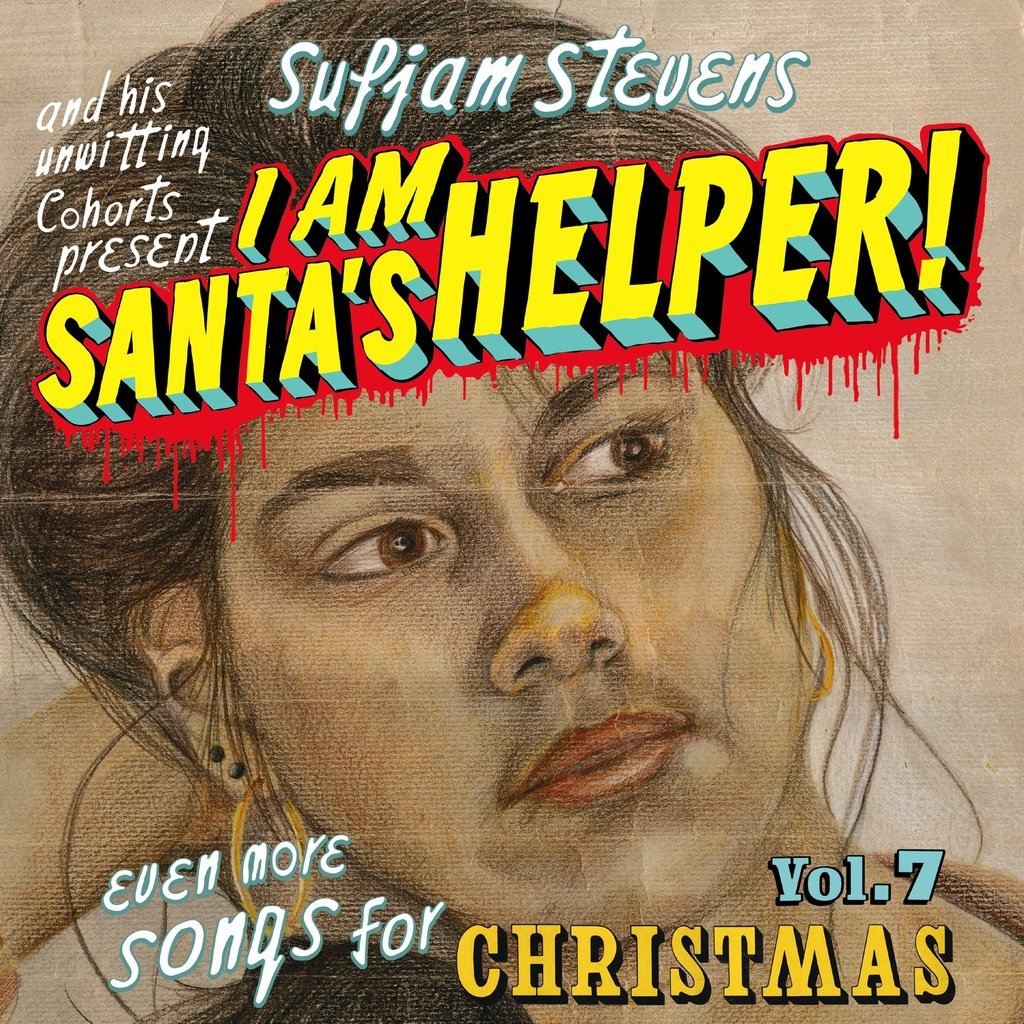Morning (Sacred Harp)
The unassuming “Morning (Sacred Harp),” clocking in at two minutes and 27 seconds of instrumental, might be the sort of tune that doesn’t stick in your head upon first listen, doubtless why it has been relegated to this year’s isle of misfit carols. I can understand why it doesn’t get more attention, but I cannot forgive the slight, which is why it brings me great pleasure to go to bat for this piece and hopefully give it some of the praise it deserves. Like “Idumea,” previously covered, the piece is drawn from the Sacred Harp musical tradition, but the treatment of the 300-year-old song (and perhaps even older melody) is different. Whereas “Idumea” provides a faithful choral arrangement, in “Morning,” Sufjan goes back to his roots, dusting off what sounds like every recorder in his collection for a somber carol that comes out eerie and a bit archaic.
I loved the song from first listen because I have always liked my Christmas songs somber. I have long preferred “O Come Emmanuel” and “Light One Candle to Watch for Messiah” to the pop-y, overrated “Gloria in Excelsis Deo,” for example, and “Morning” follows in that same vein. In fact, it isn’t even a Christmas song - the original lyrics are more befitting of a Halloween carol, if such a thing even exists. The song is about the triumph of Christ over death and is full of imagery of blood, ghosts, and evil:
He dies, the friend of sinners dies,
Lo! Salem’s daughters weep around;
A solemn darkness veils the skies,
A sudden trembling shakes the ground.
Ye saints approach! the anguish view
Of Him who groans beneath your load,
He gives His precious life for you,
For you He sheds His precious blood.
Here’s love and grief beyond degree:
The Lord of glory dies for men;
But lo! what sudden joys we see!
Jesus, the dead, revives again.
The rising God forsakes the tomb;
Up to His Father’s court He flies,
Cherubic legions guard Him home,
And shout Him welcome to the skies.
In a Sacred Harp arrangement, the verses are sung in a four-part harmony; here, Sufjan replaces each part of the Sacred Harp choir with a single recorder corresponding to that part’s register. Sufjan’s version is sparser than would be traditional. His four recorders whistle through the song like the wind in the naked trees of “Zoe” Fitzgerald’s music video. Somehow this delicate treatment really brings the Christmas vibe for me, in a cold-yuletide-morn-in-a-drafty-1700s-castle kind of way. I hope you’ll listen for yourself and follow it up with the traditional Sacred Harp version for comparison.
This is the point of the article at which there is usually some deep personal insight about the song in question. I’ll have a stab at it. While I have abandoned religion, most likely forever, I cannot kick the craving for the sacred. It’s an emotion to me: the deep, inner feeling of awe at something greater than myself. I experience it often as an adult, but it never quite “hits” in the way I felt it as a child. I grew up spending my Sundays at a neogothic revival, century-old Lutheran church, dark brick with a 50-foot-high nave lined with blue stained glass. I always thought, from inside, the ceiling looked like the inside of an upside-down boat, most likely Noah’s. We drove there at night on Christmas Eve, sang classic hymns, and had a nativity play. The air was always festive but somber - there was something about that grand, intimidating old building which brought the feeling of ritual in a way a modern megachurch never will.
The grand finale of the Christmas Eve service was “Silent Night” - the church lights were dimmed, candles passed around, and from the flame at the altar, the pastor lit his candle and passed the flame to two congregants, who then passed it to their neighbors, until at last in the darkened church a hundred tiny candles flickered as all sang verse after verse of Silent Night. It always amazes me how a pipe organ and a hundred untrained voices can make music more powerful and moving than any soloist. This is the principle of the Sacred Harp tradition as well - dozens of ordinary voices combine to make something magical.
When that craving for ritual overtakes me and I listen to the church hymns of my youth, I cannot stand solo performances. I obsessively track down 300-view, low-def YouTube videos of churches in the middle of nowhere, posting their choir performance from the county fair. I am always chasing that feeling of when the lights went out in the big church, and a hundred voices rose as one to make something move in me. Sufjan’s Christmas albums have become the lone exception to the no-solo-hymns rule: I think it’s the unpretentious way his voice cracks and warbles through them. I chose Morning (Sacred Harp) because it gives me that same feeling. The church is dark, the candles begin to light up one by one, and the swell of a choir of recorders fills the air.
(I stole this image of my former church from the internet, credit to the artist “sunbadger”)
Xanthropocene is a meme admin, story writer, a person who makes art stuff, and on top of all that, she has a real big-girl day job. You can find her other works by searching “xanthropocene” on Instagram or substack.

